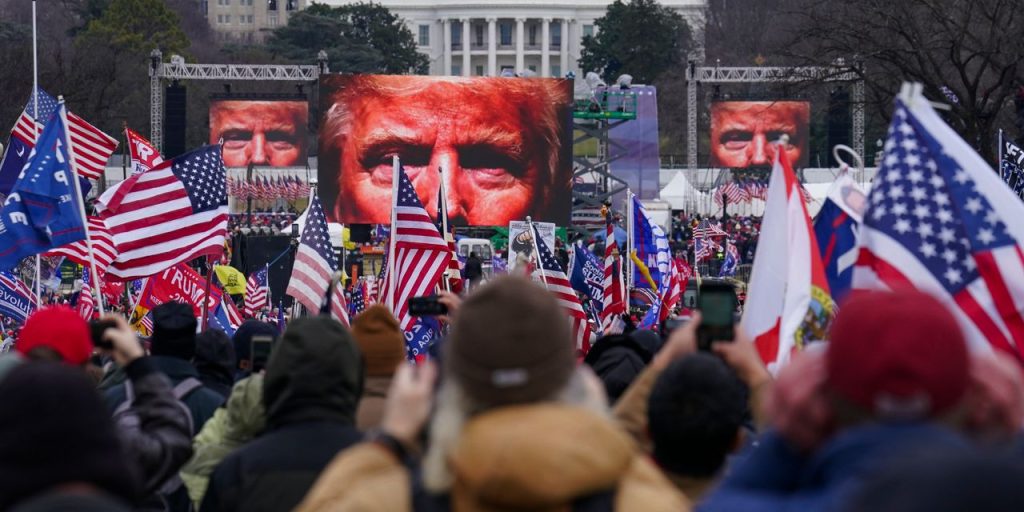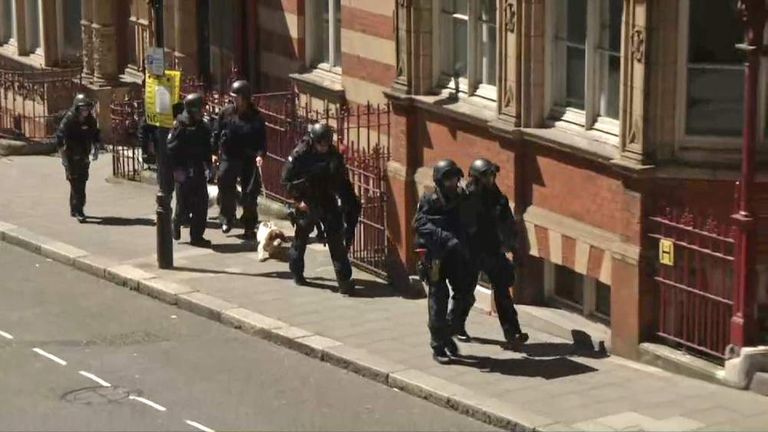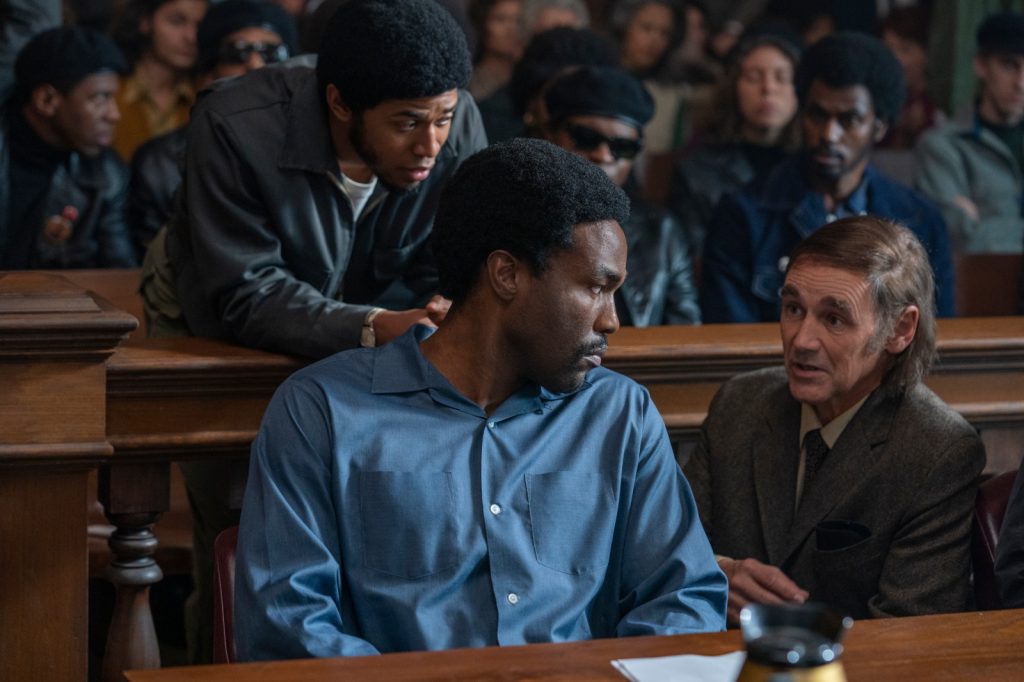As I write this, it is January 2021. A few days ago, rioters stormed the U.S. Capitol, attempting a violent insurrection of the U.S government, fueled at its core by anger, hatred, and lies. That event is still very raw for us, and in some ways, it made watching this movie very uncomfortable. It sparked a discussion between my wife and me about sympathy, and whether it is possible to feel compassion for people, no matter their methods or beliefs, who think they are doing the right thing by standing up to the establishment. I think it is possible…but there is a limit to that compassion.
The recent actions at the Capitol have been called a protest by some, but after watching The Trial of the Chicago Seven, I know the Capitol rioters were not protestors. If a protestor brings firearms to a protest, they cease being protestors and, by definition, become terrorists. If a citizen attacks the government of his or her own country, they become traitors. I understand why they are upset, but I have no sympathy. There is definitely a right and wrong, and starting a violent insurrection of our government because your guy didn’t win is wrong.

The 1968 protests, on the other hand, were at the Democratic National Convention in Chicago to protest the Vietnam War. Specifically, they wanted an end to the war in order to prevent more American soldiers from dying. From the evidence available, it seems that they were not armed and certainly did not show up wearing tactical combat gear. They were not there because they believed a mountain of lies, and evidence also suggests that they did not incite violence; the police did. So, yes, I have sympathy for them because they were peacefully protesting based on verifiable facts and common decency. That is why we view the main characters in the film as the protagonists rather than view them as the dirty hippies that they were accused of being at the time.
(SPOILER ALERT – It’s been fifty-two years and the fact that many of us, myself included, do not know this history is sad.)
Knowing nothing about the protests in the film, my main reason for wanting to watch it was Aaron Sorkin. The West Wing remains one of the best written television shows of all time and I will always watch a Sorkin film because of it. Even if you did not know The Trial of the Chicago Seven was written by Sorkin, you will know very quickly. It features Sorkin’s signature long takes and witty dialogue, hooking you instantly. It also won’t take you very long to notice the similarities to A Few Good Men, another Sorkin classic. And who doesn’t love a very well written courtroom drama?
Much of the film takes place in a courtroom, showing us the trial of eight men – Abbie Hoffman (Sacha Baron Cohen), Tom Hayden (Eddie Redmayne), Rennie Davis (Alex Sharp), Jerry Rubin (Jeremy Strong), David Dellinger (John Carroll Lynch), Lee Weiner (Noah Robbins), John Froines (Daniel Flaherty), and Bobby Seale (Yahya Abdul-Mateen II) – interlaced with flashbacks that piece together the events leading up to the riot and the riot itself. Yes, that is eight men, not seven. I know – I was confused too. A major part of the story is how Bobby Seale was arrested as part of the effort by authorities to stamp out the protests, even though he wasn’t part of the group that planned the protest, as well as an attempt to take down the Black Panthers (which Seale cofounded). Eventually, Seale was removed from the case and the charges were dropped, though that was by no means the end of his legal travails. He was also arguably the most memorable part of the trial, if not the film.

Seale is the first reason to feel sympathy for the group as a whole. His lawyer was in the hospital when the trial started and the judge refused to delay the trial to wait for his lawyer to recover. Even though neither you nor I are lawyers, we both know that forcing a person to stand trial without a lawyer is illegal, a violation of the constitution, and, to put it in Latin terms, horseshit. When this fact is pointed out several times by Bobby, as well as by the lead council for the other seven, William Kunstler (Mark Rylance), Judge Julius Hoffman (Frank Langella) shrugs it off without a care for the law or justice. Immediately you side with the defendants, especially Bobby, and hate Judge Hoffman with a passion.
As the trial moves along, the blatant injustice perpetrated by Judge Hoffman becomes infuriating. He constantly dismisses objections, evidence, testimony, and the law, always to the detriment of the defendants while demeaning them in the process. In addition, he doles out arbitrary and capricious admonitions, as well as contempt charges, as if he has a side bet with the prosecution’s boss. And during this whole facade, you will wonder if there is a line Judge Hoffman can cross that will cause federal prosecutor Richard Schultz (Joseph Gordon-Levitt) to finally speak up. As it turns out, the answer is yes, but it is the bare minimum and far overdue in the course of the trial.
This being a Sorkin vehicle, the defendants are ready with quick witticisms and smart retorts. Abbie and Jerry provide plenty of levity to keep the trial from becoming a medieval inquisition, though rack up the contempt charges at a brisk pace. Throughout the length of the trial, we get to know the men through the flashbacks and conversations outside the courtroom. The back and forth between the timelines works great for character building and slowly ratchets up the drama as both the trial and pre-riot events come to a climax. It’s like watching the best pieces of The West Wing hook up with the best pieces of A Few Good Men and you almost cry it’s so good.

Besides the writing, the reason why the whole movie works so well is the acting. Every line in the film is delivered with a passion that would make the actual historical figures proud. Well, maybe not Judge Hoffman. The whole point of acting is to make the audience believe the actor is the character. Langella puts forth a performance that makes Hoffman the odious and hateful person he is described as being (yes, I did some reading after watching the film). It’s the kind of performance that would make Hoffman’s mother roll over in her grave and it was awesome to behold. And that was just the tip of the iceberg. Cohen shines as Abbie Hoffman, as does Redmayne as Hayden. The two of them are at odds with each other while sharing ideals, and the exchanges are everything we love from Sorkin. As an added bonus, we even get treated to five-ish minutes of A-plus Michael Keaton near the end of the second act.
As well as being a fantastic movie, it is also an extremely relevant movie. Being released in summer of 2020, during the heights of the Black Lives Matter and George Floyd protests, is apropos due to both the film and current events putting a spotlight on police brutality, institutional racism, and people protesting to make the message heard. It will absolutely invoke sympathy in any viewer with an ounce of decency and caring for his fellow Americans. It is exactly the movie we need right now to make us see things for what they are and to remember that protesting requires truth and non-violence. It is the kind of movie that shows us we only need a few good people to make a difference.
Rating: Don’t ask for any money back, but do ask for a history book. You can handle the truth.